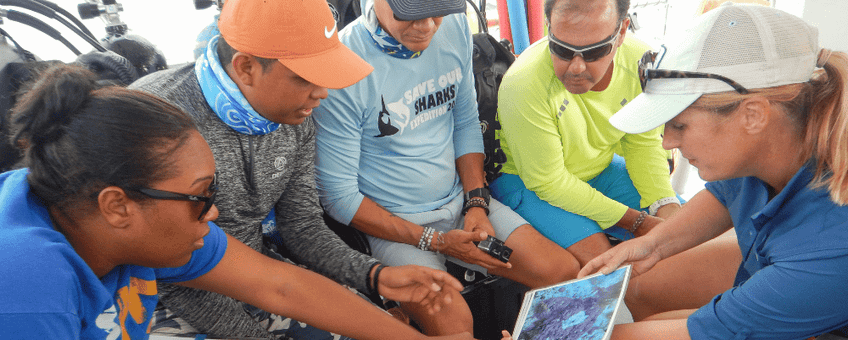
International collaboration for coral restoration in the Dutch Caribbean
Dutch Caribbean Nature Alliance (DCNA)The project was funded by the Coral Research and Development Accelerator Platform (CORDAP).
The presentation, led by Patricia Richards Kramer of Atlantic and Gulf Rapid Reef Assessment (AGRRA) and Emma Doyle of MPAConnect/GCFI, introduced comprehensive Coral Restoration Roadmaps designed to rescue, recover, and expand coral populations throughout the Caribbean. These roadmaps will guide restoration efforts at a local scale, while aiming for impactful recovery of high-risk corals that are crucial to the region's marine ecosystems.
Roadmaps to Success
Recent data collected from 37 Marine Protected Areas (MPAs) in the MPAConnect network, highlights the urgency of these initiatives. Nearly 75 percent of these MPAs are currently engaged in restoration activities, though only about 25 percent have formal restoration plans in place. This gap underscores the importance of the newly developed roadmaps, which will provide structured guidance for MPA managers to incorporate coral restoration into the implementation of their management objectives.
The roadmaps consider several critical restoration techniques, including in-situ nurseries, micro-fragmentation and outplanting. These have been developed by a number of coral restoration specialists and are already being applied in some Caribbean MPAs. These efforts are complemented by cutting-edge approaches like spawning monitoring, gamete collection, in-situ and ex-situ larval rearing, laboratory-assisted fertilization, cryo-preservation and herbivore co-cultivation, further driving the restoration agenda forward.

Long-term strategies
This work is not without its own challenges. MPAs face many problems, including limited technical capacity, insufficient funding and a need for partnership building. By focusing on these areas, the CORDAP AGRRA/MPAConnect project group aims to equip local managers with the tools and knowledge necessary to effectively restore and manage coral ecosystems. Opportunities such as the DCNA Reef Restoration Workshop allow individuals who work in and around MPAs to forge new partners for the future.
Coral restoration initiatives need to extend beyond immediate restoration actions. These roadmaps also incorporate long-term strategies, including monitoring coral health, disease, and bleaching. The ultimate goals are to preserve coral biodiversity, increase coral populations, improve reef ecosystem function, and promote resilience against climate change. All while engaging local communities and stakeholders. The ongoing development and implementation of these plans will be crucial in reversing the decline of coral reefs, safeguarding marine biodiversity, and ensuring sustainable livelihoods for communities dependent on healthy reef ecosystems.
More information
- Watch the presentation Caribbean Coral Restoration Road Maps
- Stay tuned for more articles in this coral reef restoration series, where we will delve deeper into the topics discussed during the workshop, highlighting the critical work being done to preserve these vital marine ecosystems.
- This workshop is funded by the Ministry of Agriculture, Nature and Food Quality and supported by the Dutch Postcode Lottery.
Tekst: Dutch Caribbean Nature Alliance (DCNA)
Foto’s: Emma Doyle, MPAConnect/GCFI; Patricia Richards Kramer, DCNA
